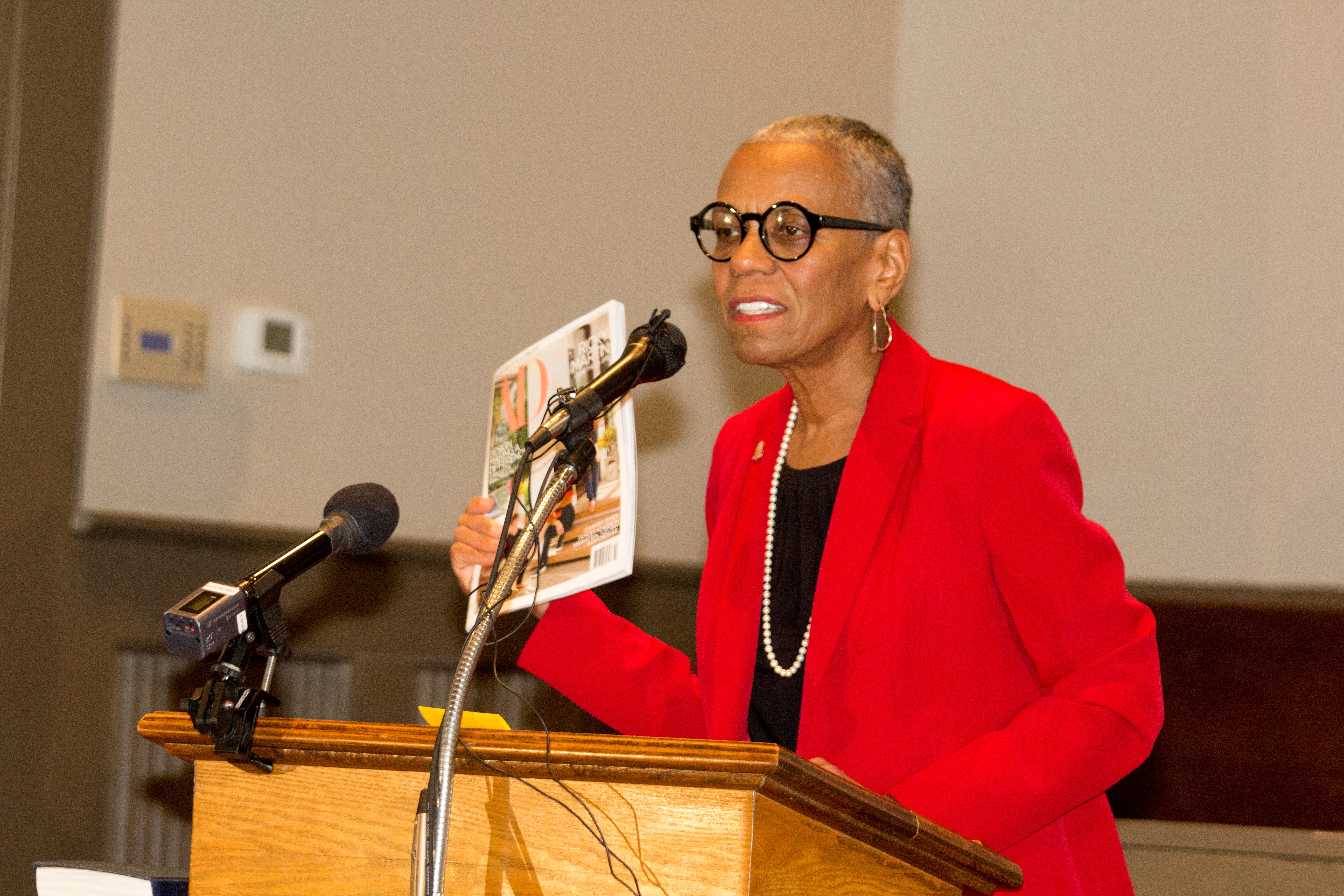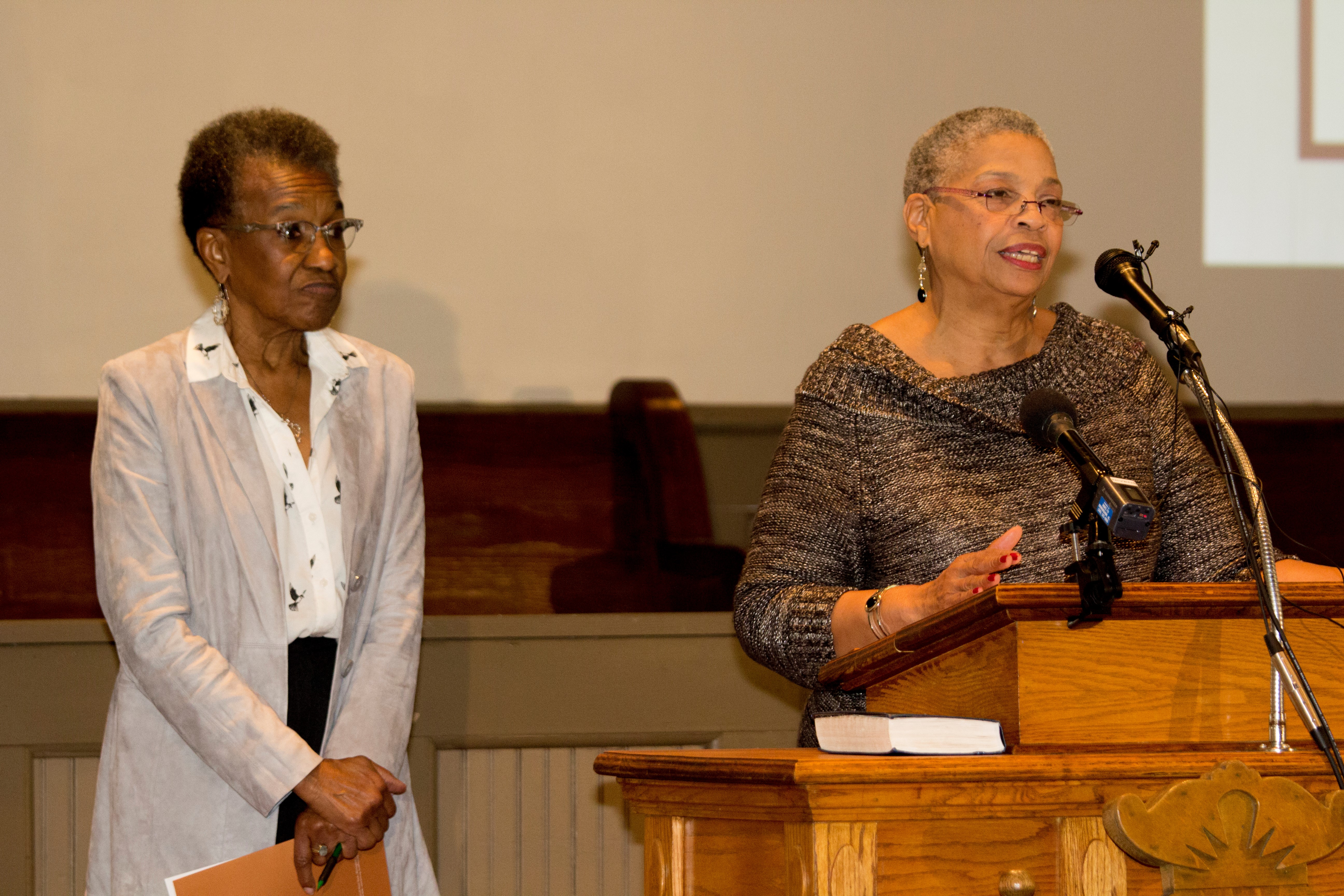
By Erica Wright
The Birmingham Times

Twenty Alabama African-American heritage sites have been added to the World Monuments Fund’s global “Watch List” for preservation.
The sites, known as the Alabama African-American Civil Rights Heritage Sites Consortium, have been added in an effort to save the buildings from decay and destruction. The sites are all places of worship, lodging and civic engagement and include sites in Birmingham, Montgomery, Selma and Greensboro.
Andrea Taylor, president and CEO of the Birmingham Civil Rights Institute, said the BCRI nominated the sites for the list.
“These sites were crucial to the progress of global human rights,” said Taylor, during a press conference Monday at the historic Bethel Baptist Church. “The selected sites include places that enabled African-Americans to meet and organize when that wouldn’t have been possible otherwise. We hope this is the trigger to help these sites start the process of preservation.”
Sites in Birmingham include Old Sardis Baptist Church, 16th Street Baptist Church, Bethel Baptist Church, St. Paul United Methodist Church and The Ballard House.
Joshua David, president and CEO of World Monuments Fund, said, “The Alabama Civil Rights Sites Consortium embodies World Monuments Fund’s efforts to support conservation work that can drive positive social change for communities around the world.
“The churches, homes and meeting places we have recognized represent our best and most treasured human values. We aim to celebrate and share these inspiring stories of courage and resolve, paving the way for a sustained legacy of action and social justice.”

Priscilla Hancock Cooper, project director, said the Watch List has led to the identification of additional sites.
“In partnership with the Education Foundation of America, BCRI has conducted a needs assessment survey and brought representatives of the sites together to discuss their shared history, current needs and future vision,” she said. “Additional consortium sites will be added that meet the designated criteria and participate in the needs assessment survey.”
Preservation of the sites is important organizers say because years before the Civil Rights Movement, many African-Americans worked to create economic prosperity, build their communities and improve their quality of life in Alabama. After the Civil War during the Reconstruction period and through most of the 20th century, they built their own churches, schools, homes and hotels that gave inspiration, shelter and comfort. While many buildings have vanished, some still remain.
Other sites on the list which are located in Montgomery, Selma and the Black Belt include Brown Chapel AME Church, First (Colored) Baptist Church, Jackson Family Home, Jackson Family/SNCC Compound in White Hall, Ben Moore Hotel, Dexter Avenue King Memorial Baptist Church, Dr. Richard Harris House, Mt. Zion AME Zion Church, Dexter Avenue King Parsonage and many more.
Consortium leaders said they hope to not only preserve the buildings but want to revitalize them for future generations.
Montgomery’s Georgette Norman said the sites mean so much more than just the civil rights movement of the 1950s and ‘60s. “It was about people’s struggle to ‘be’,” she said. “We are human beings in this country, yet for centuries were not treated as such. These sites remind us of the patience and accountability it took to get to this point and beyond. That’s something this generation can embrace and carry forward.”



